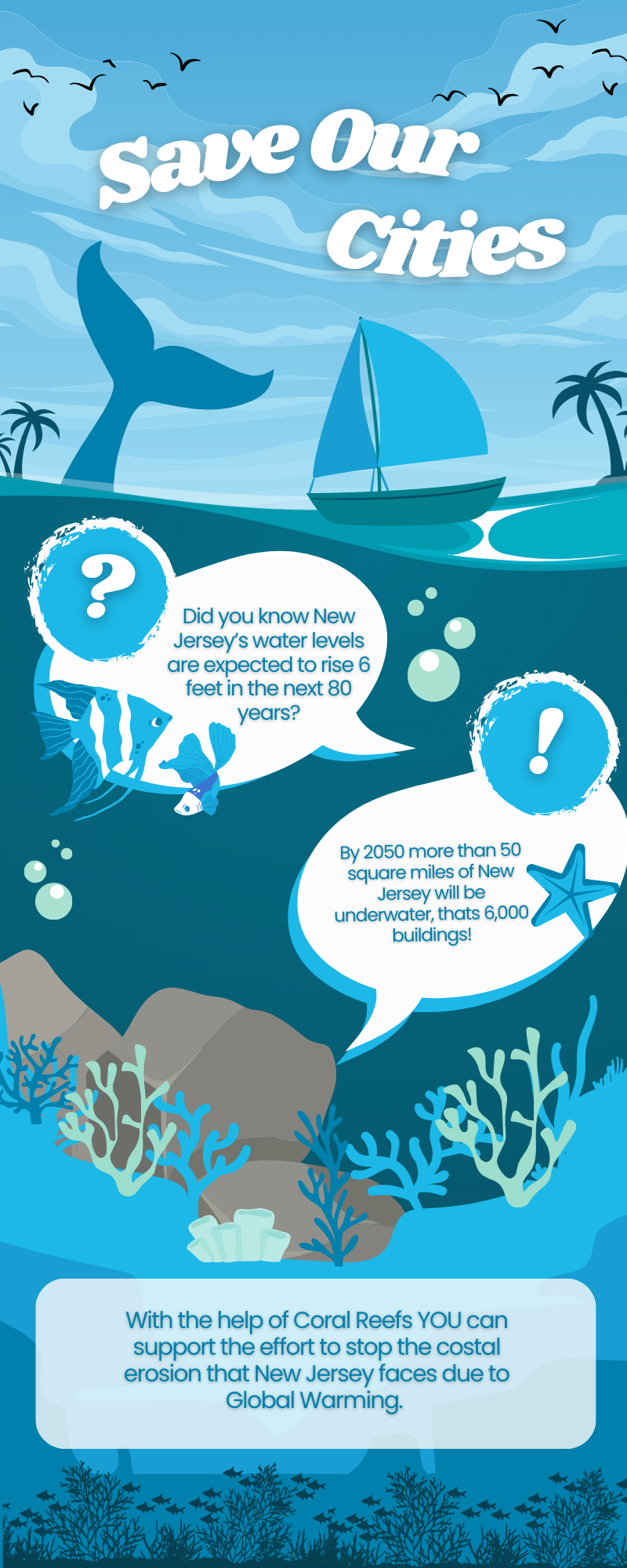The Atlantic spans 1,304 square miles of New Jersey's shore, meaning about, 14% of the state is water. Within the century, water levels are predicted to rise to 6 feet. This will affect roads, buildings, and anything at or below sea level in towns and cities along the shore. The rising water levels do not only mean flooding, but also millions in property damage, water contamination, and hazardous effects on the people that live there.
Coral reefs are a perfect solution to the approaching water levels. They serve as underwater protection that breaks apart waves and with some man-made alterations, they can become more aerodynamic, slowing waves down immensely, engineers can also harness and absorb wave energy, reinforcing and enhancing the natural qualities of the reefs. By providing protection, waves can't crash onto sandy beaches and erode the coastline. Coral reefs can be natural and artificial, both still able to provide a home for underwater creatures and help with the tourism and marine industries on land.
While not a permanent solution to the overall global warming issue, the implementation of coral reefs would provide the community with more time to brainstorm more lasting ideas.
Contact us
Thank you for your interest in contacting Future Engineers. We look forward to connecting with you!
General Inquiries
support@futureengineers.orgSponsorship Inquiries
sponsor@futureengineers.org
